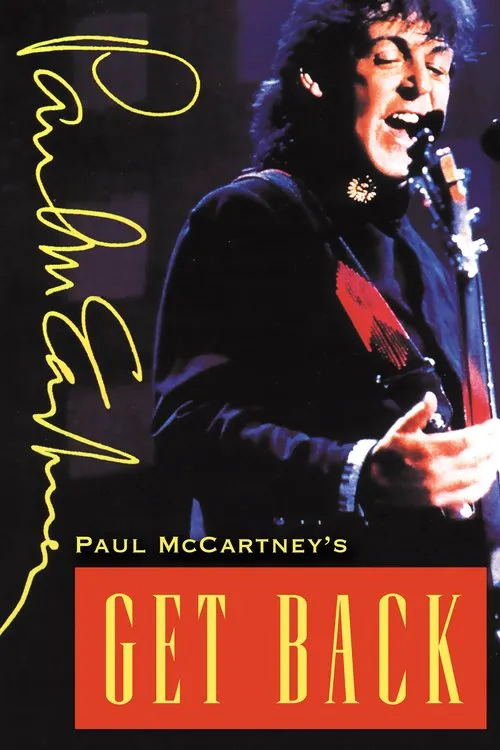Paul McCartney's Get Back

Plot
The year was 1989, and the music landscape was buzzing with the news that Paul McCartney, one of the most iconic musicians of the 20th century, was about to embark on a global tour. McCartney, the legendary vocalist, songwriter, and multi-instrumentalist of the Beatles, had a reputation for delivering incredible live performances, and fans worldwide eagerly anticipated the upcoming tour. Little did they know, the magic of this tour would be captured on film for future generations to enjoy. Get Back, aptly titled as a nod to the Beatles' classic album of the same name, was a concert film directed by the celebrated British director Richard Lester. A master of filmmaking and a close friend of the Beatles, Lester had previously collaborated with the Fab Four on two of their most iconic films, A Hard Day's Night and Help!. This marked a triumphant return to his Beatles-related work, allowing him to weave his unique cinematic magic around the captivating live performances of Paul McCartney. The documentary-style concert film is based on The Paul McCartney World Tour, a three-year trek that took place from 1989 to 1990. During this time, McCartney traveled to various corners of the globe, showcasing his remarkable musical talents to sold-out crowds. The tour featured an extensive setlist that spanned his illustrious career, from the Beatles' epoch to his post-Apple Records solo output. The Paul McCartney World Tour was a massive production featuring a stellar band, comprising guitarist Robbie McIntosh, bassist Paul Wickens, and drummer Chris Whitten, who all became integral to the performance. Together, they delivered unforgettable renditions of some of McCartney's most beloved tracks, including hits like "Maybe I'm Amazed," "Coming Up," and "Let It Be." The chemistry among the band members and McCartney himself was palpable, as they seemed to relish in the sheer joy of music-making. Get Back is not merely a concert film; it's a deeply personal and engaging portrait of a musician in his element. Behind the scenes, we glimpse the meticulous preparation and camaraderie that define McCartney's creative process. The film also delves into the various stops on the tour, revealing the local environments and cultures that influenced the band's performances. The concert footage itself is breathtaking, showcasing McCartney's boundless energy and musicianship as he effortlessly switches between instruments. One of the standout aspects of Get Back is the sheer diversity of the performances captured on film. The documentary takes us on a sonic journey that spans multiple continents, as we witness McCartney connect with his audience through music. Each stop on the tour offers a new context and atmosphere, from the intimate settings of the smaller venues to the elaborate production values of the larger arenas. Throughout the film, the viewer is treated to an array of behind-the-scenes moments that humanize McCartney and offer a glimpse into the creative mind of a true music icon. We see snippets of preparation and rehearsals, where the attention to detail is evident in every aspect, from the intricate arrangements to the precise timing. Even the brief moments of banter between McCartney and his bandmates or stagehands are imbued with a sense of camaraderie and mutual respect, highlighting the special bond that exists among the musicians. Get Back is a testament to the enduring power of Paul McCartney's live performances, as well as the timelessly captivating essence of his music. Even though this concert film has its roots in the late 1980s, the music remains ageless and timeless. It speaks to the universal human experience of the need to connect and express oneself, qualities that McCartney embodies through his craft. Ultimately, Get Back is more than just a concert film; it's a nostalgic journey through the world of a musical legend. With its captivating live performances, intimate behind-the-scenes moments, and infectious enthusiasm, this film invites viewers to join McCartney on an unforgettable musical adventure that transcends borders, cultures, and generations. Get Back shines as a testament to the enduring legacy of Paul McCartney, reminding us all that music has the power to unite, inspire, and transcend time itself.
Reviews
Recommendations




